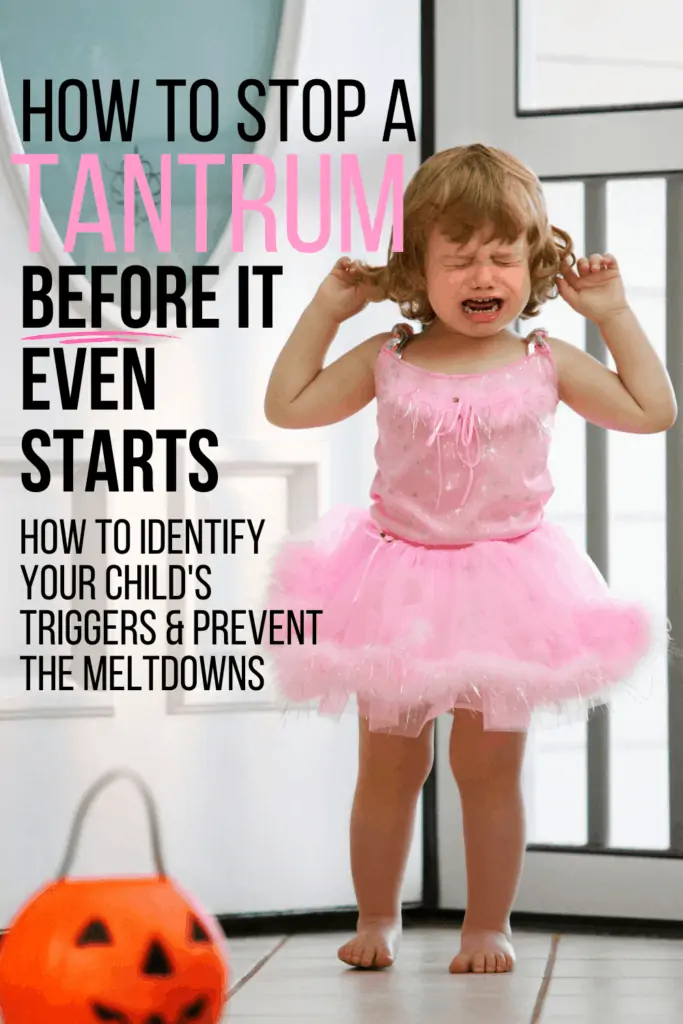
Stopping Tantrums Before They Start
Parents of toddlers have experienced at least one tantrum. If you are lucky, you have only experienced a few of them. Most parents experience them often and it gets frustrating. You may have heard the saying “An ounce of prevention is worth a pound of cure.” This is no truer in any other situation than toddler tantrums. Once they start, they are nearly impossible to stop. If you can head them off from the beginning, you might avoid embarrassment, frustration, and headaches.
Know the Signs
Children generally exhibit signs before melting down. If your toddler suddenly melts down with little to no warning, you might want to consult a doctor. Knowing the signs may be a matter of knowing your child. Here are a few typical signs, but every child is different.
Fatigue
Fatigue and exhaustion are most often the biggest factors contributing to toddler tantrums. Toddlers are unable to articulate all of their feelings. Being tired exacerbates their articulation difficulties. They begin to feel frustrated, desire sleep, and seek stimulation. This trio is a recipe for disaster. Noticing when your child is tired and helping them rest or taking them out of difficult situations can minimize your risk of tantrum.
Hunger
Hangry has become a cute slang word over the last few years. People know that when they get too hungry frustration begins. Children are no different when it comes to hunger and anger. However, as adults, we can do something about this. We know how to get our own food. If a child is hungry and has to wait, anxiety, frustration, and anger are triggered.
Overstimulation
Friends, cousins, unexpected guests, free time at the park, and a million little things can be fantastic stimulation. However, when that stimulation lasts too long or there are too many stimulants, children cannot cope. They do not know how to compensate for so much stimulation.
Understimulation
Like overstimulation, this is entirely environmental. Bored children look for things to do. Anger and frustration can arise when they feel they have spent long enough sitting, waiting, or riding. Too much time doing nothing is not good for small children.
Lack of Boundaries
Children who have no boundaries do not know how to react when boundaries are placed. The same is true when they normally have boundaries and those have been lowered for too long. Grandparents are fantastic, and they offer cheap babysitting for many parents. However, they can sometimes be a bit lenient. If they are too permissive (or auntie or dad), when the boundaries return, children can sometimes be challenged to accept the rules again.
Handling Signs and Triggers
While we may miss signs and triggers occasionally, we can watch for what triggers children’s tantrums. It will take a while to figure out triggers, but you can and will get a handle on them.
Schedule Your Day Carefully
No one can help traffic jams, late doctors, and car troubles, but you can minimize the effects if you plan your schedule with your child in mind. For instance, if you know that you have a doctor’s appointment at an office that often runs late, plan a fun activity afterward. Most children’s doctors have play areas in the lobby, but some of them may remove materials during flu season and it’s still crucial that children stay quiet. Plan to take them to the park for a few minutes to burn some energy after a long appointment. Try not to schedule challenging activities around naptimes. Unless you can depend on your baby sleeping through grocery shopping, naptime is probably not the best time.
Take Breaks
If overstimulation is a problem, taking a break is okay. Sunday at Grandmas was a favorite time for many of us as children. However, how many times was there a fight or something just before time to go home. If your little one is struggling to handle stimulation, try to let him or her slow down and do a calmer activity for a while. A few minutes to color or read books might be enough time to settle down.
Bring Snacks
Everyone needs a snack now and then. A fruit bar in your bag or applesauce pouches in the diaper bag can be the best thing you ever bring with you. When children are hungry and it isn’t time to eat, they can usually get by with just a little applesauce or fruit bar. Be sure to bring snacks your child likes, and you are comfortable with them eating.
Make Pit Stops
Long drives and extended shopping trips can make for restless children. Being strapped into the car, stroller, then shopping cart is usually too much for the children. Shopping centers also have bright lights. The stimulation can be confusing—too much light, color, and sound, but not enough movement.
Play a Game
Sometimes you cannot change the stimulant or trigger. You are stuck at the doctor’s office or in the grocery line for extended periods. It happens. You ran out of snacks and you can feel a tantrum looming. Play a game or offer a distraction. Sometimes your child is merely fixated on the boredom, stimulant, or hunger and cannot focus. Changing their focal point can end their fixation, at least temporarily.
Help Them Learn
One of the worst things a parent can tell their child is to “use your words.” That sounds fantastic, and it is helpful in the sense that it’s much easier to understand words than grunts or wails. However, you have to also teach them which words to use. If they are too close to the tantrum, that might not help, but if they are simply asking for something, instead of yelling, tell them how to ask for what they want. Guide your child with the words that are needed to achieve their goals. “Please mom, may I have a cookie.” “I need to use the bathroom.” These phrases are vital to children learning how to handle their requests.
Teach Them Emotion Words
Teaching them emotion words is similar to helping them learn. Children have to know how to describe their feelings. Happy, sad, tired, frustrated, hungry, angry, and hurt are all words they need to describe basic feelings. Children do not know how to express these things. Being successful at heading off tantrums sometimes requires getting to know what your child feels and helping them express it. Help you child identify these by verbally saying them. “I can see you are frustrated trying to zip your jacket. Learning new things can be hard”
Validate Those Feelings
Validating your child’s feelings of anger, sadness, and frustration can also help tremendously. Children get even more angry, sad, or frustrated when they feel like their feelings don’t matter. They don’t usually know what that means, but when you tell them not to feel what they feel, they get frustrated that they cannot change those feelings. Saying something as simple as “You’re upset that we have to leave the park. I hear you. It’s ok to be sad, we will come back to the park another day.
Final Thoughts
There are many things that we can see and do when it comes to children’s tantrums. However, you will not be able to control them all. If you are concerned about the age or severity of your child’s tantrums, you can speak to your child’s physician or a child psychologist. Begin with the doctor if possible, and work with a psychologist if necessary. Most of the time, though, children just want to feel more in control.









